
A gig held at Arnolfini on Friday 27th October. The event starts at 19:30.
An evening with Manchester-based pianist and new music specialist, Adam Swayne.
This programme of music for piano and electronics owes as much to older styles as it does the musique concrete of 20th-century France. The colourful musical palettes of French giants Couperin and Messiaen appear alongside hypnotic cityscapes and church bells. Legendary recordings by Caruso, Judy Garland, and some of the greatest albums of all time, are used as ‘found material’ in heady juxtapositions with virtuosic live piano music.
Pianist Adam Swayne presents a mesmeric hour that will challenge your perceptions. What is present, and what is past? What is music, and what is sound? What is familiar, and what is unfamiliar?
François COUPERIN Passacaille in B minor (Pièces de clavecin II: Ordre 8ème)
Jonathan HARVEY: Tombeau de Messiaen
Joanna BAILIE: Artificial Environment No.8
Matthew SERGEANT: A Self Portrait (Couperin) (Second Performance)
Charles DODGE: Any Resemblance is Purely Coincidental
Adam Swayne studied at the University of Manchester and the Royal Northern College of Music before completing his doctorate as a Fulbright Scholar at Northwestern University in the USA. His principal teachers were John Gough, John Casken and contemporary specialist Ursula Oppens.
He now combines performing, and occasional composing and conducting, with his roles as Deputy Head of Keyboard Studies at the RNCM and Programme Director for the Riot Ensemble. With Riot he has performed in contemporary music festivals throughout Europe and released a number of recordings. His “blistering” first solo CD was selected as an Instrumental Monthly Choice by BBC Music Magazine, and it also received two nominations at the 2019 Opus Klassik awards in Germany. His “powerful” second CD, a commemoration of 20 years since 9/11, was launched at the Wigmore Hall and played on BBC Radio 3. The Times described him as “a pianist of formidable technique and high intelligence” and the Evening Standard as “an ideal blend of panache and subtlety”.
www.adamswayne.com
Entry requirements:
Entry requirements:
Other experimental gigs
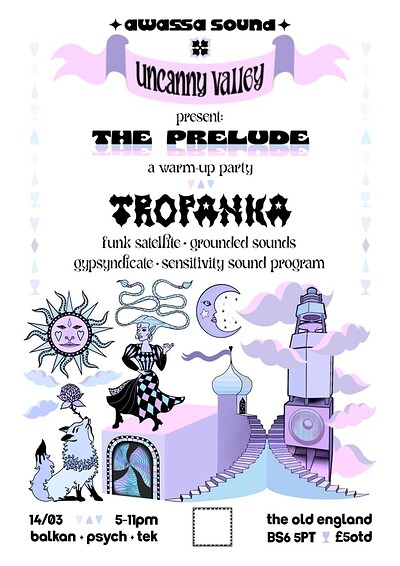
— The Old England Pub
experimental
folk
world
psych
techno
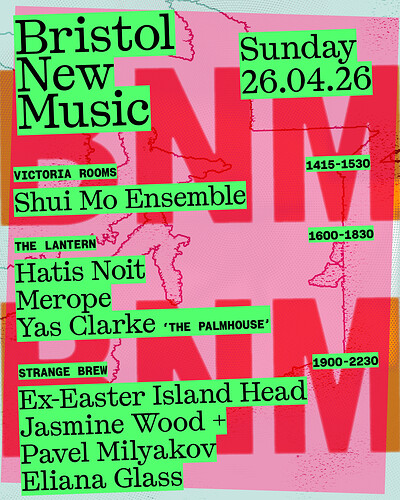
— Bristol Beacon
experimental
contemporary jazz
contemporary classical
anti-folk
electronic
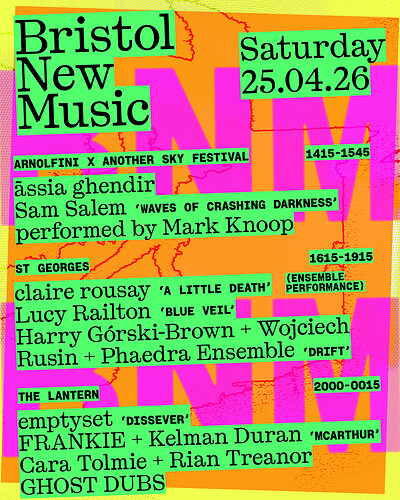
— Bristol Beacon
experimental
contemporary classical
industrial
art pop
electronic
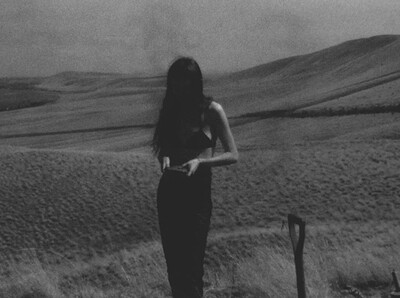
— Strange Brew
experimental
contemporary jazz
art rock
drone
electronic
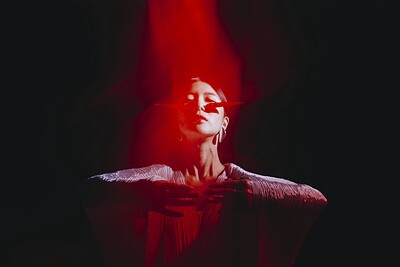
— The Lantern
experimental
world
a cappella
contemporary classical
anti-folk